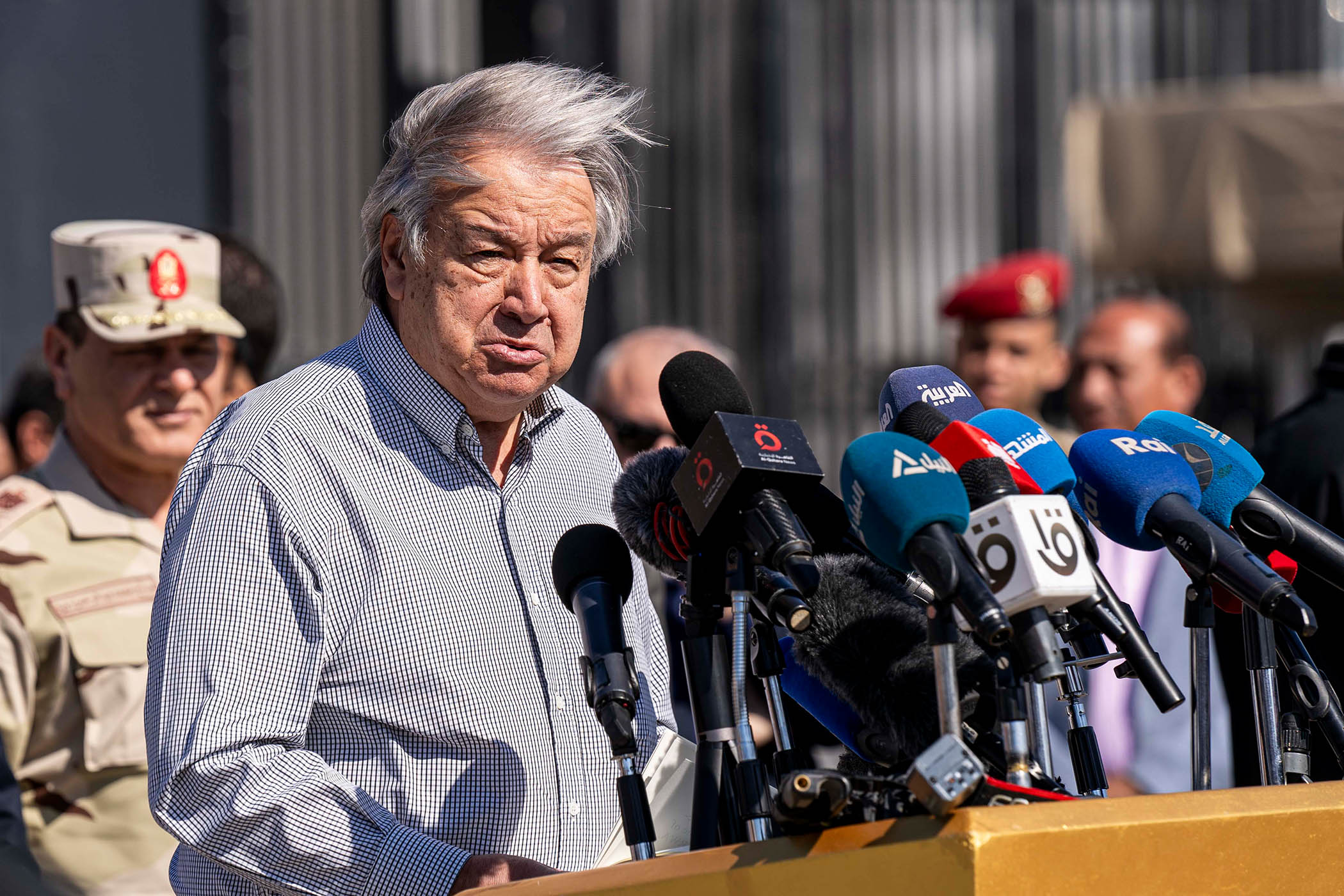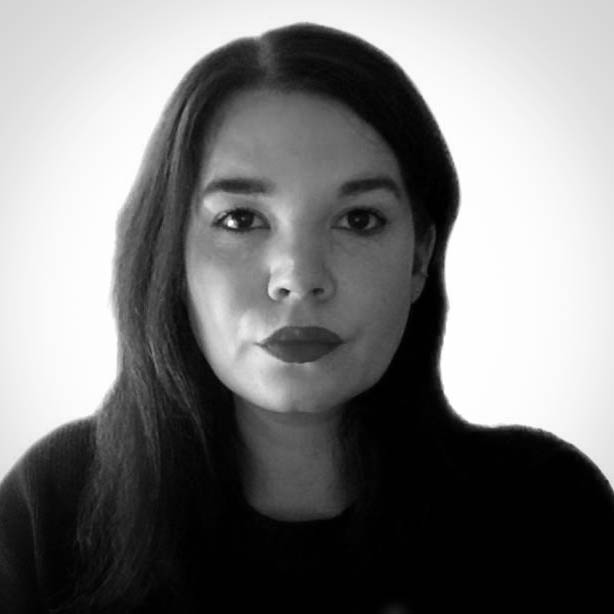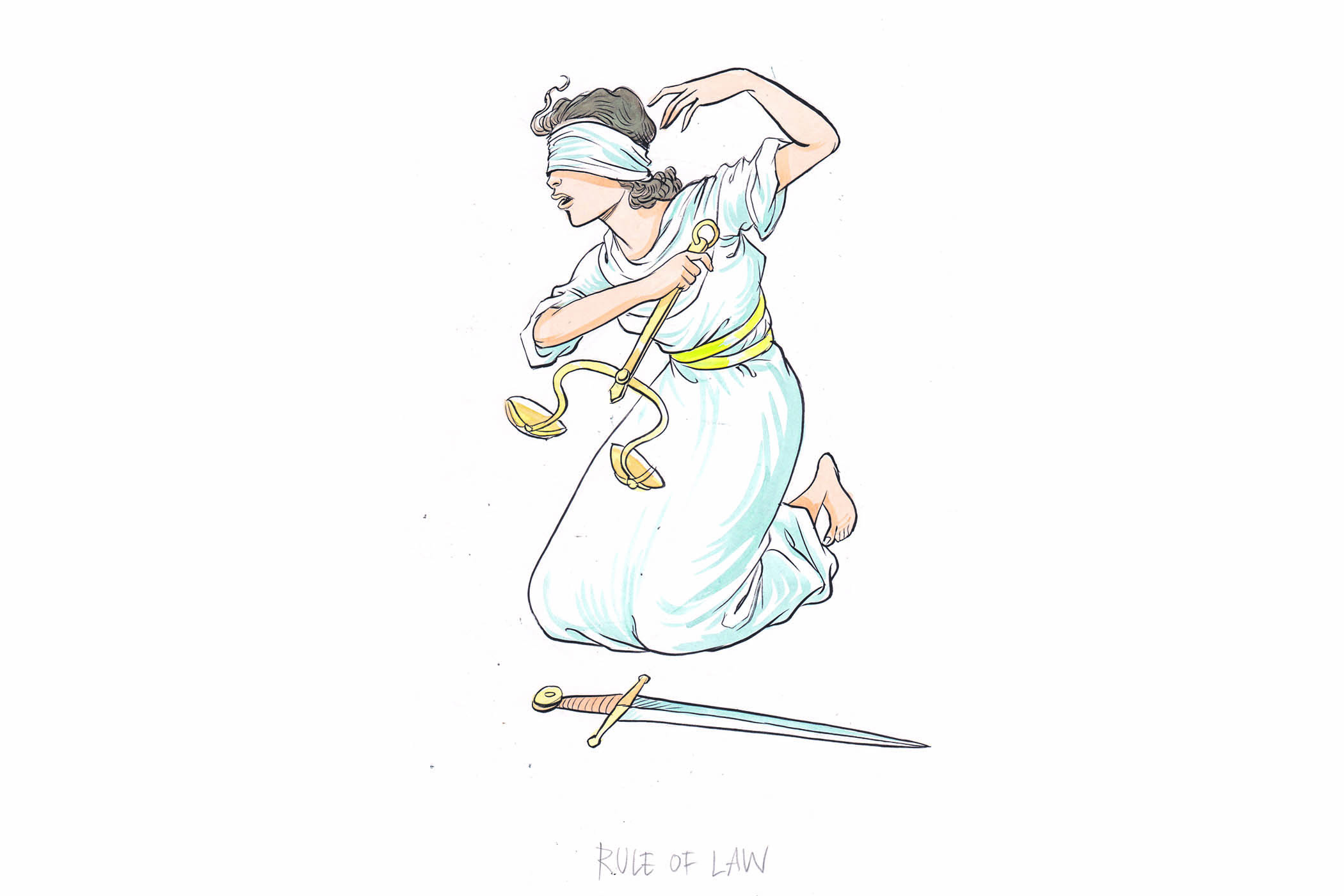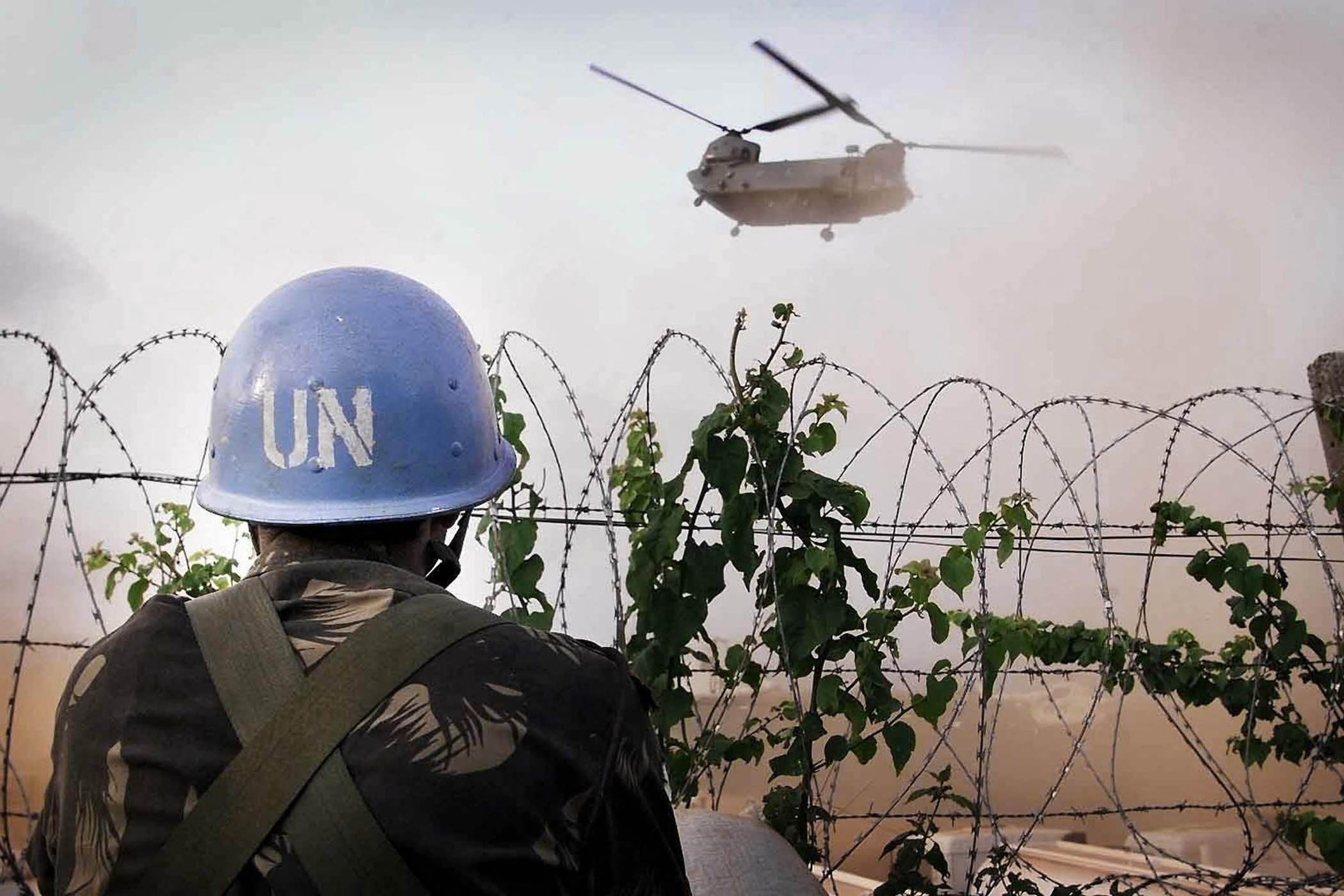When António Guterres was elected secretary general of the UN, Barack Obama was US president, Hillary Clinton was the overwhelming favourite to replace him and American backing for a rules-based global order was, at least in principle, a given.
By the time Guterres took office on 1 January 2017, Donald Trump was preparing to move into the White House and the world had changed. Guterres had to try to work with a president opposed to most of what the UN stands for. Eight years on, the jury on his legacy is out, but he has been dogged by a failure to pass any major resolutions and a perception that he has been too deferential to the superpower states.
“He’s not the only secretary general to have been a bit of a damp squib, but certainly he has been one,” says Christopher Ankersen of New York University.
Some of Guterres’ big calls have struck discordant notes. In the early days of Russia’s full-scale invasion of Ukraine, he flew to Moscow to meet President Vladimir Putin before meeting Ukraine’s President Volodymyr Zelensky.
“This was an odd stance to take,” Ankersen says, given that Russia had violated “a clear and fundamental value espoused in the UN charter”.
His failure to have any impact in Ukraine and Gaza has had a knock-on effect on other conflicts. “If the secretary general has zero influence on a war that is so televised in one part of the world, he may be less likely to be able to have influence in the Congo or Somalia or in other theatres where the UN’s work has been so necessary,” says Max Rodenbeck of the International Crisis Group.
Guterres has brought little influence to bear on conflicts in Yemen, Syria and Myanmar even though they were not directly driven by great power rivalries. Most notably, he has struggled to respond effectively to the crises in Gaza, Ukraine and Sudan. When the UN passed resolutions they went largely ignored. During the pandemic, his calls for ceasefires made no impact.
Guterres’ appeals to UN members to meet their financial obligations have gone mostly unheeded, and during his time in post, the security council, the UN’s most powerful body, has been largely paralysed. He has recognised the need for reform and launched a campaign to streamline the UN’s agencies and tortuous decision-making processes. Where it leads will be up to his successor. Guterres steps down next year.
Newsletters
Choose the newsletters you want to receive
View more
For information about how The Observer protects your data, read our Privacy Policy



